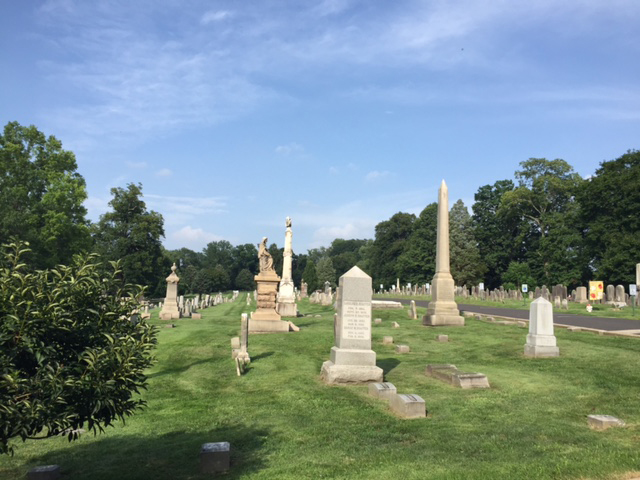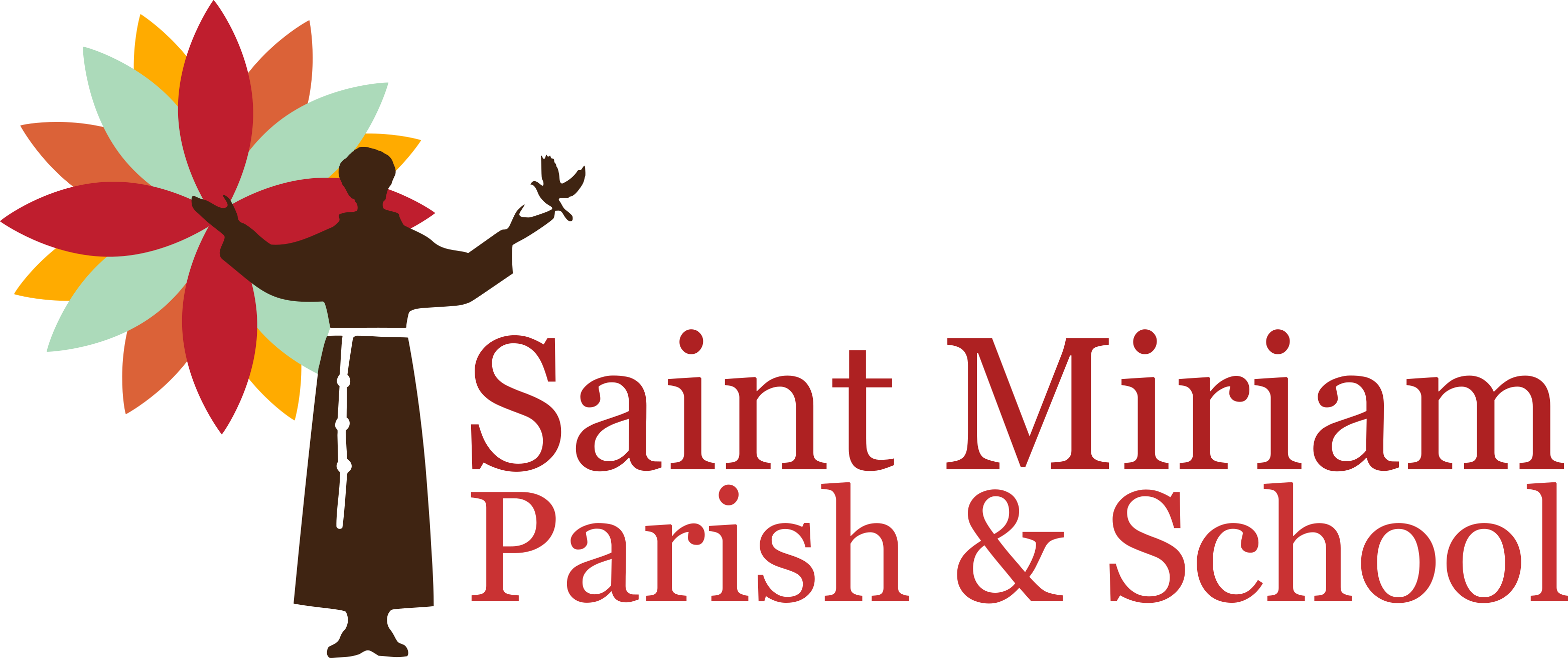
Dear Friends:
In the hope of lightening the task of planning a funeral liturgy, this planning page has been put together to help your family. Obviously the family is invited to meet with our parish priest/deacon to assist with plans for the Funeral Mass or funeral/memorial service. We hope this information will enable you to plan a liturgy, which actively involves those gathered in prayer and grief to give praise to God.
Please contact the parish office at 215-836-9800, for assistance, or for an appointment to help with your planning and to schedule a date and time for the funeral and vigil. You may also email us by Clicking Here.
We realize that family members of the deceased are often less comfortable with the planning and participation of liturgies, especially during such a difficult time. Please feel free to do as much or as little of the planning process according to your personal comfort level. Please also know that our entire staff and ministry team stands ready to assist in any way possible to reduce the burden of this needed planning and to allow you to memorialize your loved one.
On behalf of my staff and all of our parishioners at Saint Miriam, may the peace and consolation of our loving Christ be yours this day.
In Service and Peace,
Monsignor +Jim,
Pastor
The Order of Christian Funerals
Traditionally, full Catholic funeral rites are celebrated in three stages: the Vigil service, as part of the visitation; the Funeral Mass; and the Committal Service at the graveside or mausoleum. Each section is an important part of the funeral liturgy of the Catholic Church.
The funeral service is commonly led by one or more priests, who wear Coronation/White vestments, as a sign of our hope in the Risen Christ. There are also different types of funeral service. The most common service in the greater Catholic Church is a Funeral Mass, but there may be circumstances when this is not the best way of celebrating the funeral.
Types of Funeral Service:
Funeral Mass in the Church
Funeral Service in the Church without Mass
Funeral Service at the Funeral Home
Funeral Service at the Cemetery (graveside) or Mausoleum
The Parish Priest, or one of the Pastoral Care Team Members will discuss with you what you think will be the best form of service for you and your family. Perhaps you would want to take into consideration whether the deceased was a committed Catholic, whether the rest of the family are Catholic, or whether many of the family go to Mass regularly. You may wish to consider factors such as whether the congregation will be familiar with taking part in the Mass. We can help guide you through this process.
Vigil: The vigil or wake is a ceremony in which the participants gather to pay respect to the dead and to surviving family members and to attend to the deceased’s soul. It is commonly held in a funeral home or parish chapel, although it can also take place at a home or other location. A priest often leads a group prayer for those attending, or a quiet place is provided for those who wish to pray alone. A casket, or cremation urn, containing the body is usually present and may be open or closed, and flowers commonly adorn the casket and common areas, along with candles and a crucifix.
Mass: The Catholic funeral service is a Mass, generally held in church the day after the vigil. It consists of receiving the body at the church or opening rites, the liturgies of the word and Eucharist, and final committal or concluding rites. The traditional requiem mass is similar to other Catholic masses except that incense is not burned at the points usually designated, nor is the kiss of peace exchanged.
Fees
The following suggested stipends/fees are based on services rendered by Saint Miriam and her staff. (In case of financial hardship, all fees may be waived.)
Funeral Masses/Services: $625/$425*
(Includes parish stipend, altar servers, deacon, and planning meeting, does NOT include stipend to priests)
Funeral/Memorial Services – Priest Stipend
(Amount at the discretion of the family for Celebrant, recommended is $200-$300)***
Visitation at Parish: $200/$150 (1-2 hours)
Wake at Parish (Up to 2 hours prior to Mass/Service Start) $250/$175
(Includes set up, cleanup/ushers/greeters/coffee service and light fare in Café)
Memorial Services: $575/$375
The Order of Funeral Mass
Introductory Rites
(*Done only when the body is present for the Funeral Mass)
Greeting
Sprinkling with Holy Water
Placing of the Pall (May be done by the family members or friends, assisted by the presiding priest or deacon)
Placing of Christian symbols (May be done by family members or friends)
Opening Song (Chosen in advance, please see below)
Opening Prayer
Liturgy of the Word
First Reading (You may choose from Old Testament or New Testament if you only have one reading. During the Easter Season, you may have two New Testament readings.)
Psalm (sung by the Cantor – you may choose from the psalm list)
Second Reading (Optional to have a 2nd reading; from the New Testament – you may choose from the Scripture list)
Gospel (You may help choose from the Scripture list, but will be read by the priest or deacon)
Homily
Intercessions
Liturgy of the Eucharist
Presentation Song (Chosen in advance, please see below)
Preparation of the Gifts (You may choose family members or friends to bring up the gifts)
Continuation of the Mass as usual
Communion Song (Chosen in advance, please see below)
Communion
Prayer after Communion
As mentioned earlier, the appropriate place for family and friends sharing, or the offering of a eulogy or reflection, is at the Vigil. If it is determined that a speaker is to be included at the Funeral Mass this will take place following The Prayer after Communion. One person may speak who will limit the comments to three to four minutes. Again, it is requested that the person write out their comments for review and so that it be appropriate for Mass.
Final Commendation
Invitation to Prayer
Silence
Song of Farewell
Prayer of Commendation
Song (Chosen in advance, please see below)
Procession to the Place of Committal (To the cemetery or mausoleum)
Reception of the Remains of the Deceased into the Church
Traditionally the remains of the Deceased are received into the Church on the morning of the funeral. This service is normally conducted by a Priest who is assisted by one of the Pastoral Care Team Members. However there are occasions when a Priest is not available and the service is then led by a Deacon. If the family prefer they may decide to have the remains of the deceased received into the Church the evening before the Funeral Mass or Funeral Service.
Scripture Selections
You may have one or two members of your family or friends do the readings. The priest or deacon will read the Gospel.
Music for the Funeral Mass
Music plays an important role in Catholic funerals. In the past, there have been controversies in some churches over whether secular music, such as the ballad Danny Boy, should be sung at funerals. While particular selections are up to the surviving family members and officiating clergy, the overriding guidance is that the music should be uplifting and hopeful for mourners, often focusing on the themes of resurrection and everlasting life. It is common to have instrumental or choral accompaniment and to invite those attending to sing along. For suggestions on musical selections, please contact our music director by Clicking Here.
To hear some of the music produced by Saint Miriam, click here.
Eulogies
Eulogies to the deceased were not a part of traditional Catholic funeral services. Instead, they were included in the vigil held before the service or during a gathering held after the body was buried. Some parishes now allow family members to give brief remembrances following communion or just before the concluding rites. Please contact us in the planning process if you wish to include such remarks. Remember, they should be planned in advance, written, and brief.
Burial
While cremation is growing in acceptance and popularity among all Catholics, body burial is still more common. Just before the actual burial, a priest generally officiates at a short ceremony at the graveside, leading prayers and blessing the grave and coffin with holy water that has been sanctified by a priest or bishop.
When the funeral rites have ended, it is customary for the mourners to gather and share a meal, often at the home of a close relative or a local restaurant or catering facility.
